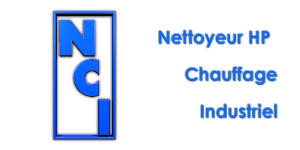The Ultimate Guide to Information Portals in the USA
Understanding the Role of Information Portals
Information portals serve as centralized platforms for accessing diverse data, acting as digital resource hubs for individuals and organizations. These portals aggregate content from multiple sources, offering users a reliable data source for research, decision-making, and collaboration. Whether in education, business, or government, an information portal streamlines access to critical resources, transforming complex data into actionable insights.
Key Features of a Modern Information Portal
A modern information portal combines functionality with accessibility, emphasizing a user-friendly interface. Key features include customizable dashboards, real-time updates, and integration with external databases. As an online knowledge center, these portals often support multimedia content, interactive tools, and secure authentication. Their design ensures seamless navigation, making them indispensable for users seeking reliable data sources in fast-paced environments.
Why Information Portals Matter for Businesses
For businesses, information portals are vital for maintaining competitive advantage. By consolidating internal and external data, they enable teams to access a reliable data source without redundant searches. These portals also foster transparency, improve productivity, and reduce operational costs. As a digital resource hub, they centralize communication, ensuring all stakeholders have access to consistent, up-to-date information.
How to Choose the Right Information Portal
Selecting the ideal information portal requires evaluating scalability, security, and customization options. A user-friendly interface is non-negotiable, as it directly impacts user adoption. Consider whether the portal integrates with your existing systems and supports multi-language capabilities. For deeper insights, explore platforms like highway casino online, which offer tailored solutions for diverse industries.
Trends Shaping the Future of Information Portals
Emerging trends highlight the integration of AI and machine learning into information portals, enhancing search accuracy and predictive analytics. Cloud-based solutions are also gaining traction, allowing remote access and real-time collaboration. As online knowledge centers evolve, expect increased focus on personalization and data-driven recommendations to meet user demands for a reliable data source.
Common Challenges in Implementing Information Portals
Implementing an information portal can face hurdles such as resistance to change, data silos, and cybersecurity risks. Organizations must prioritize training to ensure users adopt the platform’s user-friendly interface. Additionally, aligning the portal with regulatory compliance standards is crucial to protect sensitive data and maintain trust as a reliable data source.
Best Practices for Optimizing Information Portals
Optimization begins with regular content updates and performance monitoring. A user-friendly interface should be intuitive, with clear navigation and minimal steps to access critical information. Incorporating feedback loops allows continuous improvement, ensuring the portal remains a dynamic digital resource hub. Security protocols must also be reinforced to safeguard against breaches.
Case Studies: Success Stories in the USA
Many U.S. companies have leveraged information portals to transform operations. For instance, a healthcare provider used an online knowledge center to streamline patient records, reducing administrative errors by 40%. Similarly, a manufacturing firm improved supply chain efficiency by integrating its portal with IoT devices, highlighting the value of a reliable data source in real-time decision-making.
The Impact of AI on Information Portals
Artificial intelligence is revolutionizing information portals by enabling automated data categorization and personalized user experiences. AI-driven chatbots assist in answering queries, while predictive analytics help identify trends. These advancements position information portals as smarter digital resource hubs, capable of adapting to user needs and delivering precise results from a reliable data source.
Security Considerations for Information Portals
As a repository of sensitive information, an information portal must prioritize encryption, access controls, and regular audits. Cyber threats like phishing and data leaks require robust defenses. Ensuring the portal’s user-friendly interface does not compromise security is essential, balancing convenience with protection of the reliable data source it houses.
Integrating Information Portals with Existing Systems
Seamless integration with legacy systems is critical for maximizing the value of an information portal. APIs and middleware facilitate connectivity, allowing data to flow between platforms without disruption. This compatibility ensures the portal functions as a unified digital resource hub, enhancing overall operational efficiency.
User Experience Design for Information Portals
User experience (UX) design is pivotal in creating an effective information portal. Elements like responsive layouts, accessible fonts, and interactive elements contribute to a user-friendly interface. By prioritizing UX, developers ensure users can quickly locate information, reinforcing the portal’s role as an online knowledge center and reliable data source.
Measuring the Effectiveness of Information Portals
Effectiveness is measured through metrics like user engagement, query resolution rates, and system uptime. Surveys and analytics tools provide insights into how well the portal meets user needs. Regular assessments help refine the platform, ensuring it remains a trusted digital resource hub and reliable data source for all stakeholders.
Frequently Asked Questions About Information Portals
- What makes an information portal different from a website? An information portal aggregates data from multiple sources, offering a centralized, user-friendly interface for accessing diverse content.
- Can small businesses benefit from information portals? Yes, they provide scalable solutions for managing data efficiently, acting as a digital resource hub even for limited teams.
- How secure are information portals? Reputable portals use encryption and multi-factor authentication to protect data, ensuring they remain a reliable data source.
Resources for Further Learning
Explore industry reports, case studies, and vendor whitepapers to deepen your understanding of information portals. Engage with online forums and webinars to stay updated on innovations in digital resource hubs and online knowledge centers.
Posted in: Non classé
Leave a Comment (0) →